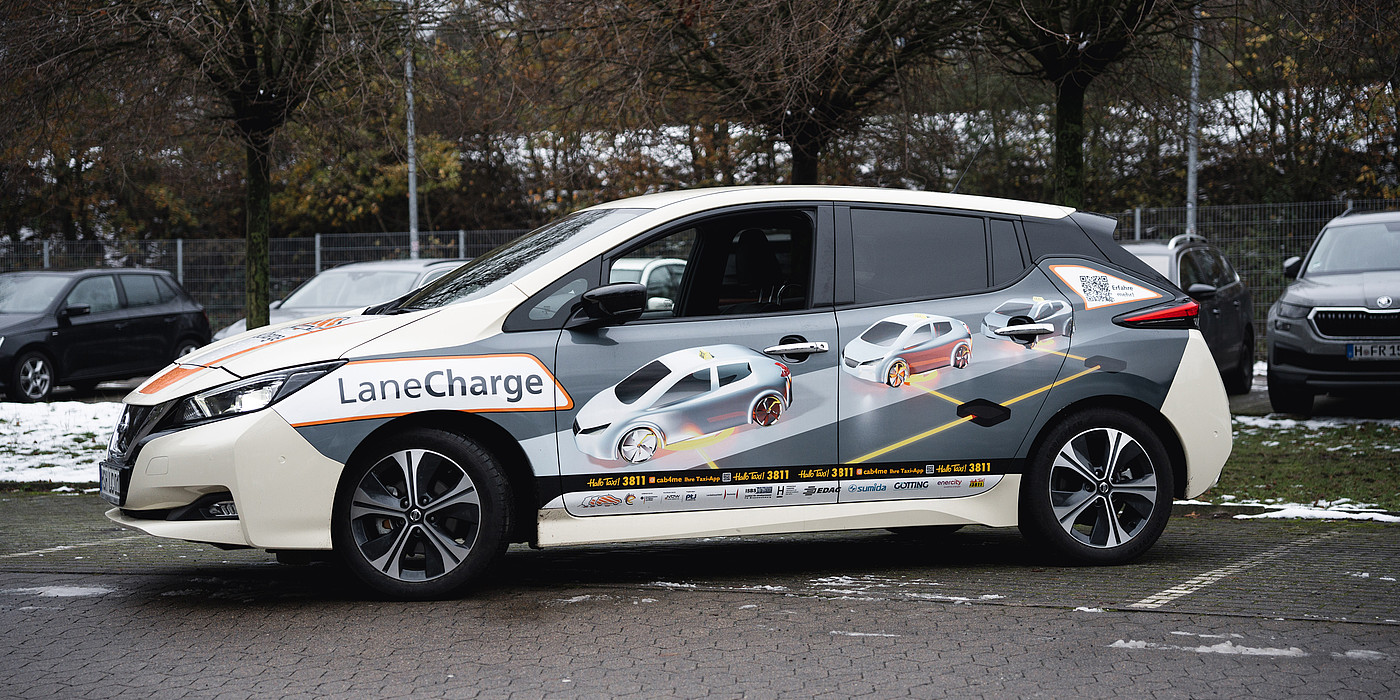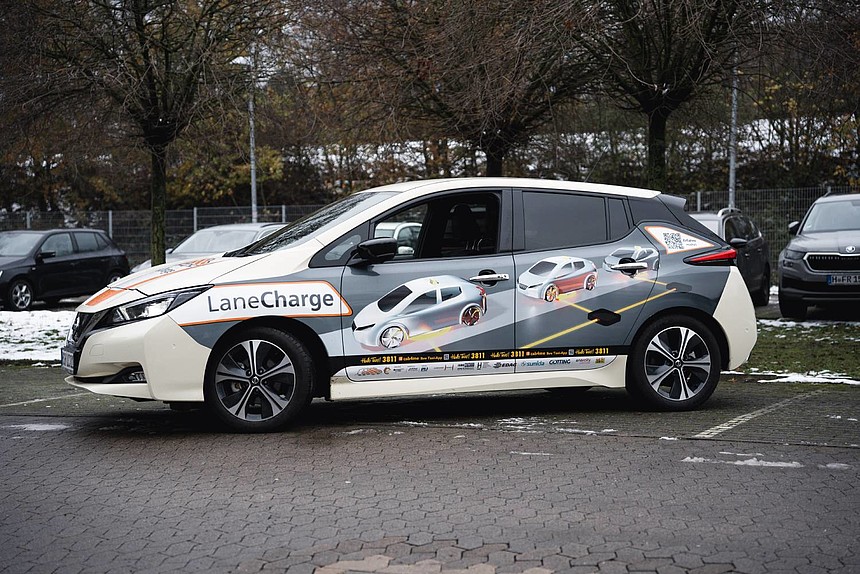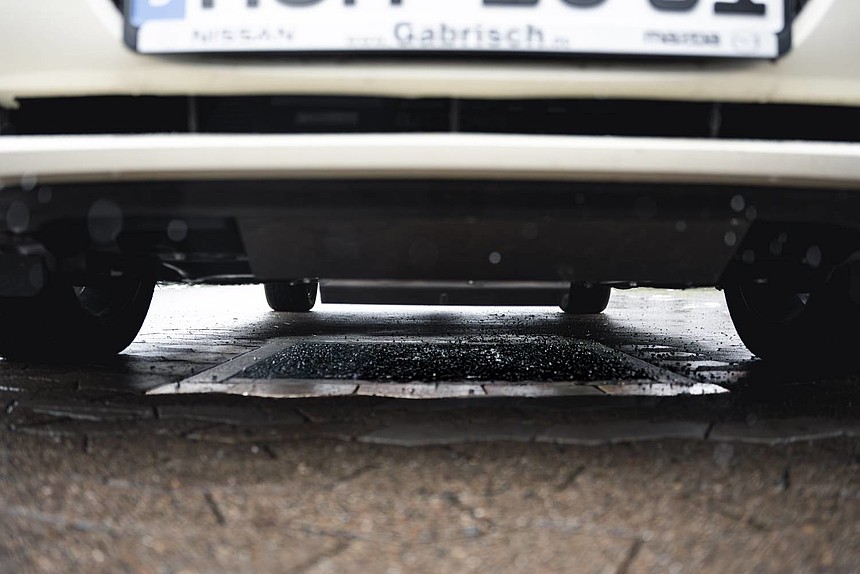Within the context of a four-year research project, the EDAG Group, engineering service provider to the mobility industry and technology developer for industrial solutions, has developed and applied for a patent on a process for the inductive charging of electric cars. Under the project name "LaneCharge", the Group joined forces with partners from science and industry to develop a new technology that will revolutionize the provision of a low-cost, robust and interoperable charging infrastructure.
As a result of the EDAG innovation, it will be possible for eCars to be charged without human intervention in the future: when parked, waiting at traffic lights, at home in the garage – wirelessly, at recurring short intervals, and using the same technology in both the public and the private sphere. Dr.-Ing. Jan Leilich, Head of Innovations at the EDAG Group, underlines the advantages of the process: "Unlike previous attempts to find solutions, the charging intelligence is no longer in the road, but in the vehicle. This means the technology embedded in the road is simpler and robuster than it was in the past." The EDAG Group has applied for a patent on this new process.
The project results were presented to the public for the first time at the official closing event on the grounds of Hanover University of Applied Sciences and Arts. Up to 12 induction coils can be charged wirelessly over a test distance of more than 90 meters here.
"We are very happy to have been able to present the technology to a broad audience together with the entire project team," emphasizes Matthias Girlach, Head of the Embedded Systems department at the EDAG Group. "Inductive charging is not just an issue for electric vehicles - we also see great potential for the use of this technology in intralogistics, for instance. The advantages are obvious: for one, of course, the convenience. But even more important is the potential for automation. Inductive charging is becoming an increasingly important factor for automated vehicles, both in private and in non-public areas such as industrial parks or on airport aprons. We have already established contact with our first new customers in the industrial electronics sector."
In addition to the EDAG Group, the project team consisted of the Hanover University of Applied Sciences and Arts, the Technische Universität Braunschweig and SUMIDA Components & Modules.
The "LaneCharge" research project has been funded to the tune of € 2.77 million within the scope of the Electromobility Funding Directive of the Federal Ministry of Transport and Digital Infrastructure (BMDV). The directive was coordinated by NOW GmbH, and implemented by project sponsor Jülich (PtJ).


